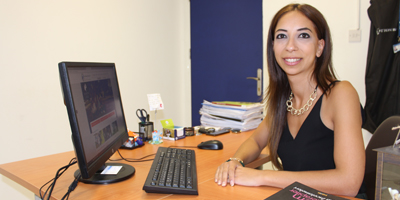EUL Academician Direktör drew attention to the behavioral changes experienced by children during the closure process

European University of Lefke (EUL) Psychology Department academic staff member Asst. Prof. Dr. Cemaliye Direktör made statements about the things to be considered in the process of staying “Alone at Home with Children” during the closing process during the pandemic.
“The Covid-19 outbreak has turned our lives upside down and changed. The incoming change is sudden and rapid. While the virus can be understood for an adult, especially for a young child, everything that he / she cannot see is added to the list of things that he questions and does not make sense. Older children can follow the news of illness and death through the media. For this reason, they try to protect both themselves and their families by following the rules more. So they struggle with “fears that something will happen to me or someone.” Young children do not understand what happened, ”said Direktör, but they were aware that something bad was happening.
Direktör explaining how young children perceive the closure process and the changing roles of family members, she continued: We observe more sticking behavior in young children. They do not show or do not want to perform many of the skills they have acquired before. Children react quite naturally to a crisis that affects the whole world, their reaction is anxiety. They suddenly shut down at home. They were removed from all social areas. Playgrounds, school, sports grounds, cinema, etc. everything has been out of reach for about a year. Instead of going to school and playing games with their friends, they sit at the tablet. They have to spend the energy they spend in breaks inside the house. They cannot interact with their teachers and friends. They had a brand new education life. Moreover, parents and siblings are also in the middle of this education. In many homes, another child has a lesson at the same time. Parents have to follow both their own business and their children’s education. At the same time, the distribution of roles in the house has also changed. While the children went to school, the parents went to work. However, when the father has to continue his work from home while the mother goes to work, the father has to take on many roles at the same time, such as following the children’s lessons, spending quality time with them, maintaining his own business and organizing housework. The changing balances at home have increased the burden and responsibilities of parents. Adapting is a very difficult process. Innovation always creates stress, but adaptation is achieved if the arrangement is done under your own control. The epidemic is not under our control, but our family can be controlled ”
Direktör, First of all, we must admit that each family member has its own difficulties in the epidemic. Attention to the fact that children move with full energy during the period when they are closed at home, rushing around the house instead of playing with toys, bickering between siblings, complaining about each other, telling each other endlessly, not wanting to attend classes, not doing homework, being awake, and opposing behaviors have increased. drew. “These examples actually apply to adults as well. Because the epidemic prevents our lives, it causes us to feel anger, and the uncertainty in the process causes us to feel anxiety. This is why conflicts within the family have increased, ” said.
Direktör “If you want to be listened, you must learn to listen”
“The epidemic should definitely be discussed with children. The roles of family members should be reorganized. Each individual should have a special time in the confusion. Nobody is just a mother or a father. She is both an employee, a mother, a wife and a child. But the most important is only himself first. Therefore, devoting time to each of these roles makes it stronger to adapt to the epidemic. This way, he will have the chance to make others happy by being happy. ”Direktör stated that speaking is always a good solution and that speaking ourselves helps the other person understand us.
“Talk to your child no matter how old he is. But beware. Don’t talk to him for minutes to distract him, nor give him a speech in a way that doesn’t give him a say. Listen first. If you want to be listened you must learn to listen. Review your rules. If you can get help, get support from every individual around you. Feeling alone will wear you out more. Enjoy playing games. Although it is difficult to make a very bored child like a game, they want to involve you or make you angry are actually calls to you “I’m scared, stand by me”. Say that when you’re tired. Make sure to take time for yourself to stay calm. Every parent wants his child’s wellbeing. Therefore, heal yourself first, ” she said.
